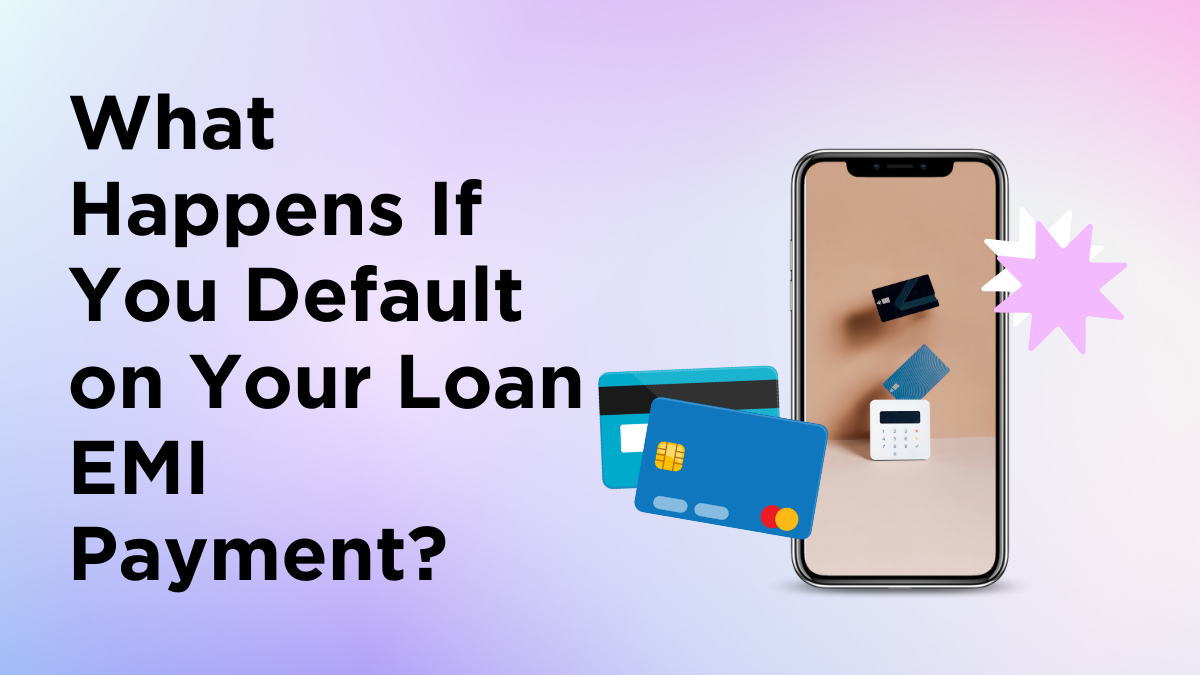Taking a loan often feels like a financial lifeline when you need to make big purchases or handle urgent expenses. Whether it’s a home loan, car loan, or personal loan, paying Equated Monthly Installments (EMIs) becomes a responsibility for the borrower. However, life can sometimes throw unexpected curveballs, and missing an EMI payment is possible. If you’re worried about defaulting on a loan EMI or are already in that situation, here’s what you need to know about what happens next.
1. Immediate Financial Impact
When you miss an EMI payment, the lender typically sends reminders to notify you about the missed payment. They may give you a grace period to pay without major penalties. However, if you still cannot pay within the stipulated time, here’s what can happen:
- Late Fees and Penalties: The lender will likely impose a late fee, which can vary depending on the lender’s policies. Some banks or financial institutions may charge hefty penalties, especially if the loan amount is large.
- Increase in Interest Rate: Some loans come with the provision that, in case of default, the interest rate can be raised, making future payments more expensive.
2. Credit Score Impact
Defaulting on an EMI payment affects your credit score almost immediately. Your lender will report the missed payment to credit bureaus such as CIBIL (in India) or Equifax (in the U.S.), which will lower your credit score.
- Long-term Impact: The longer you delay, the more severe the impact on your credit history. It can take months or even years to rebuild a damaged credit score.
- Future Loan Challenges: A lower credit score reduces your chances of getting loans or credit cards in the future. Even if you are approved, you will likely face higher interest rates or more stringent terms.
3. Persistent Follow-Ups by the Lender
If you continue to default, the lender will escalate their follow-up efforts. Here’s what typically happens:
- Phone Calls and Letters: Initially, the lender’s collection department will contact you by phone or send written communication asking for the overdue amount.
- Recovery Agents: If the default continues, the lender may send recovery agents to meet with you in person, and they will urge you to clear your dues.
4. Legal Action
If the default is prolonged and significant, especially in the case of secured loans (such as home or car loans), the lender can resort to legal measures.
- Loan Agreement Terms: Most loan agreements state that in case of default, the lender can take legal action to recover the outstanding amount. For secured loans, this could mean seizing the collateral, such as repossessing your car or auctioning your home.
- Court Proceedings: In extreme cases, the lender may take the matter to court, where they can seek legal remedies to recover their dues. This not only adds legal fees to your debt but also severely damages your financial reputation.
5. Repercussions for Secured vs. Unsecured Loans
The consequences of defaulting on a loan vary based on whether it’s a secured or unsecured loan.
- Secured Loans: These loans are backed by collateral, such as property or vehicles. If you default, the lender has the right to repossess or auction the collateral to recover their money.
- Unsecured Loans: These loans (like personal loans or credit card debt) are not backed by collateral. However, defaulting on these loans can still result in aggressive collection efforts, legal action, and credit score damage.
6. Possibility of Loan Restructuring
If you foresee difficulty repaying your loan, you should speak with your lender before defaulting. Many financial institutions offer loan restructuring options.
- Rescheduling: The lender may extend your loan tenure, which reduces your monthly EMI but increases the overall interest payable.
- Temporary Moratorium: Some banks offer a temporary suspension of EMIs, allowing you to pause payments for a few months without penalty.
- Debt Consolidation: If you have multiple loans, you may explore debt consolidation options where you merge all your loans into one with a potentially lower interest rate.
7. Emotional Stress and Well-being
Defaulting on EMIs can be a stressful experience, affecting not just your finances but also your mental health.
- Anxiety and Stress: The constant follow-ups from lenders and the mounting financial burden can cause emotional strain.
- Social and Professional Consequences: In some cases, especially with large-scale defaults, your reputation could suffer within your social or professional circles.
Conclusion
Defaulting on your loan EMI payment can have far-reaching consequences—from immediate financial penalties to long-term credit score damage, legal actions, and emotional stress. It’s crucial to address the issue at the earliest, either by communicating with your lender to find an alternative solution or by adjusting your finances to ensure timely payments. By taking proactive steps, you can minimize the damage and regain control over your financial future.
Read More:- Personal Loan: 6 Ways to Fund Your Wedding

